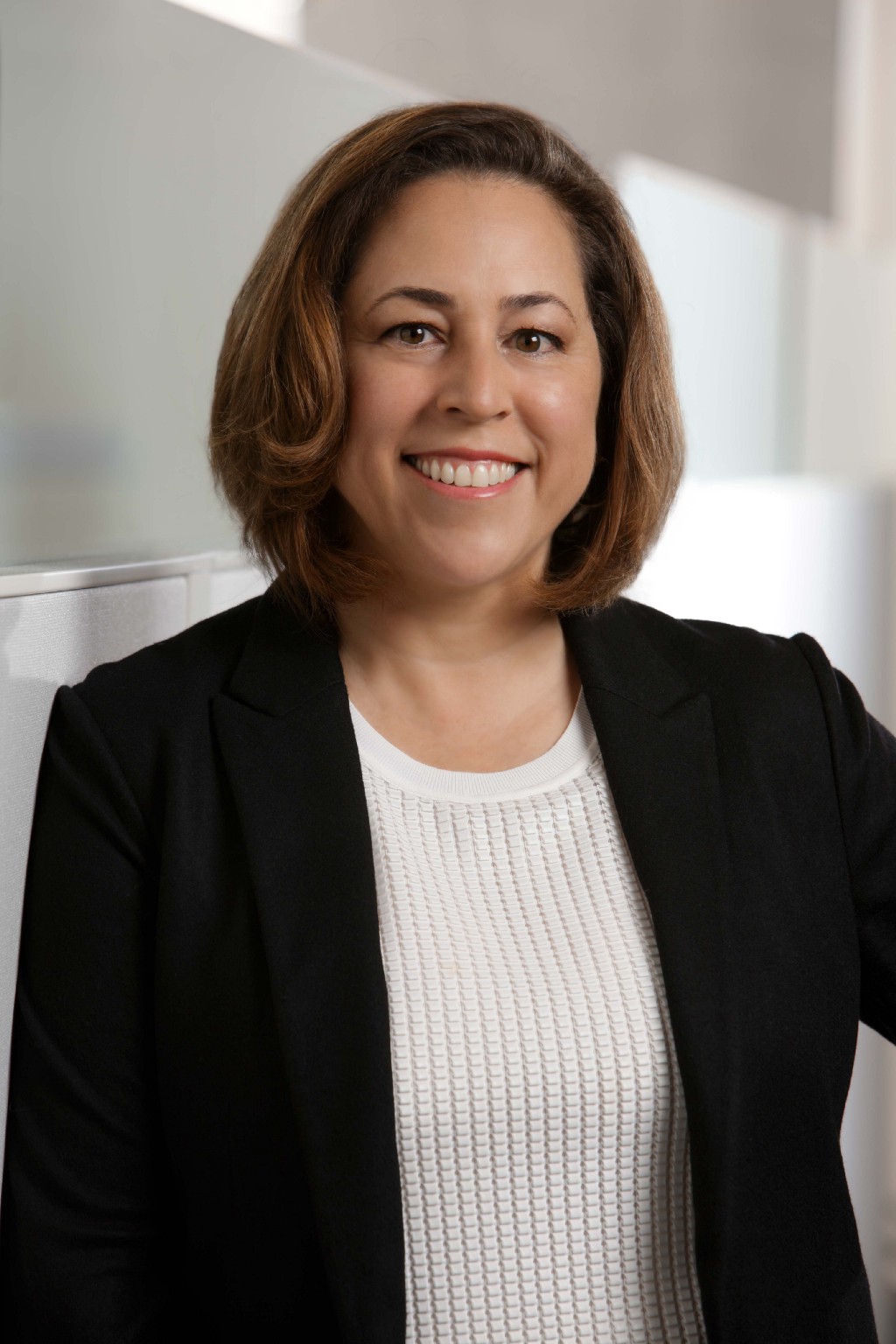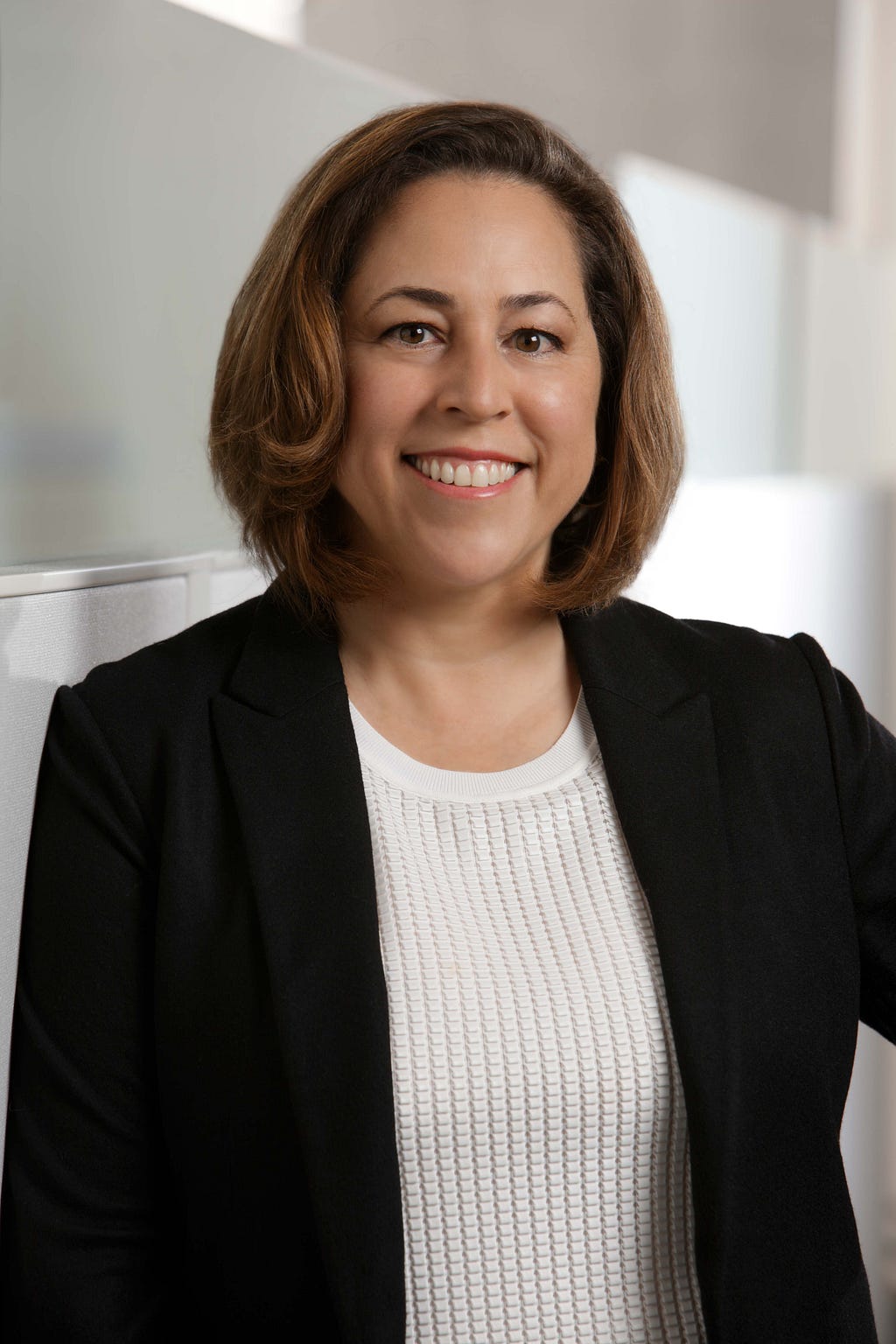An Interview With Candice Georgiadis

If you have nothing nice to say, don’t say anything. We forget this lesson as adults, but it is really important to remember these simple things in the workplace. Every role I’ve had there are people that forget that. Always treat people the way you want to be treated.
As a part of our interview series called “Women Of The C-Suite”, we had the pleasure of interviewing Joana McKenna.
Born and raised in Paris to parents who survived the Holocaust, Joana McKenna is half Spanish and half Turkish, a Sephardic Jew, and an immigrant. She’s been married for over two decades with her children and dogs. This unique background combined with her deep sense of curiosity and thirst for learning, have set her apart in her career path. From founding and selling her own successful business, to leading teams at some of the world’s largest brands, Joana has built a career defined by family, curiosity, and hunger for knowledge.
Joana is a seasoned tech leader with more than 20 years of international leadership experience in building global brands and businesses, inspiring innovative thinking, and driving international growth spanning enterprise, e-commerce, and retail industries. A veteran of the information technology market, she has held key leadership roles in sales, general management, product management, marketing, supply chain and operations at Jane, Walmart, Johnson & Johnson, and Amazon. In recognition of her achievements, Joana has been named a Top Women in Retail Honoree, a 30 Women to Watch Honoree and Utah’s 40 Over 40.
Thank you so much for joining us in this interview series! Before we dig in, our readers would like to get to know you a bit more. Can you tell us a bit about your “backstory”? What led you to this particular career path?
I was born and raised in Paris, France as the child of Holocaust survivors and have lived all around the world including three different continents. I originally went to law school but never practiced law. I’m a “geek” at heart so I pursued a career in technology. My journey has taken me to some great companies including Amazon, Johnson & Johnson, Walmart and now Jane.
Can you share the most interesting story that happened to you since you began leading your company?
As CEO of Jane, it’s my job to figure out how to respond and manage through the many unknown macroeconomics pressures of the world. Currently, Jane is known as a daily deal site, but we are working to build an evergreen marketplace committed to the discovery and support of women-owned businesses. We have more than 2,000 sellers on Jane and 89% of them are women — that’s incredible and special. None of the other big players in the marketplace can say that and we are going to own it. The Jane community is rallying around our new positioning, and we are just getting started. It’s an incredible time to be a part of Jane!
It has been said that our mistakes can be our greatest teachers. Can you share a story about the funniest mistake you made when you were first starting? Can you tell us what lesson you learned from that?
Tech has seen amazing advancement in communications (Teams, Slack, Zoom, etc.) It can also be humbling. One day, I sent a reminder to 500 people on Teams about submitting a survey and noted that every department was being graded. I sent a note saying “don’t forget to fill this out” with what I thought was an emoji finger pointing to the link. Well, it was a finger, a middle finger. Needless to say, I don’t use many emojis these days.
None of us are able to achieve success without some help along the way. Is there a particular person who you are grateful towards who helped get you to where you are? Can you share a story about that?
So many! I think that is one of the greatest lessons learned — being a leader is not about me at all. It’s about how I empower the people around me to be successful. My mother-in-law is one person who helped set me on the path I’m on today. When the opportunity with Amazon arose, it required a cross country move (not a small factor with kids, a dog and a husband). My mother-in-law took me aside and said “you should probably take it. You won’t always be able to go, but you can always come home.” That was the most important advice of my career (and life!). It gave me permission to embrace opportunities and calculated risks, which has led me to being in this seat today.
Leadership often entails making difficult decisions or hard choices between two apparently good paths. Can you share a story with us about a hard decision or choice you had to make as a leader?
So true! I think it gets really hard when you have to make people and team changes. I’m an empathetic leader and care deeply about my team members. However, as a CEO, you need to look at the growth of the company first and foremost. There were times when I should have taken action sooner than I did. If you know deep down team changes are inevitable and needed, don’t take too long to make them. Evaluate where your company is today and put people in the right seats, with fresh eyes, different frames of thinking and diversity of thought.
Ok, thank you for that. Let’s now jump to the primary focus of our interview. Most of our readers — in fact, most people — think they have a pretty good idea of what a CEO or executive does. But in just a few words can you explain what an executive does that is different from the responsibilities of the other leaders?
Being a CEO doesn’t mean you are making all decisions. You are crafting the vision, but it must be collaborative. You should strengthen yourself by hiring people much smarter than you. A CEO brings together great minds with diverse experiences to execute the vision. It’s about being a guide and on any given day, I might be the captain of the ship but I’m also the cruise director who drives communication, camaraderie, execution, and accountability.
What are the “myths” that you would like to dispel about being a CEO or executive? Can you explain what you mean?
The myth is it’s an end all/ be all role. Some people get nervous about me being in the room, but my role is to move out of the way and give the team the tools to set them up for success. I can only do that by stepping aside. The greatest achievement is that I’ve given everybody the tools to drive and execute their deliverables and even if I’m gone, they can always continue on.
In your opinion, what are the biggest challenges faced by women executives that aren’t typically faced by their male counterparts?
Where to begin. There have been a lot of positive steps for women, but there’s still a lot of work to do involving discrimination, male chauvinism, etc. There is still an underlying need to prove that women can do the job. I’m the CEO and CFO of my house, we manage all of these things, and it speaks to a woman’s ability to take on big roles, managing teams, etc. I look at stay-at-home moms and think they have exactly what it takes to make it in the workforce. At the end of the day, the greatest moment will be when we stop talking about gender altogether.
What is the most striking difference between your actual job and how you thought the job would be?
Surprisingly, being a CEO is exactly what I thought it would be. It’s about knowing what the board needs to know and sharing information about the landscape of ecommerce, retail, and Jane specifically. I knew the business needed to evolve. But when I took the role, we didn’t anticipate inflation, war, or the weakened economy. With that said, while the macro pressures came fast and furious, I’m leading the team to capture market share and embrace our mission to support women-owned businesses through our new evergreen marketplace. It’s been a great ride and we’re just getting started.
Is everyone cut out to be an executive? In your opinion, which specific traits increase the likelihood that a person will be a successful executive and what type of person should avoid aspiring to be an executive? Can you explain what you mean?
I’m not one to judge if someone has the skills to be an executive. Skill sets can be learned over time. However, I think to be successful you have to be empathetic and possess human-centric leadership skills. If you don’t invest in your people and culture, you will go nowhere — fast. You can’t only be top line/bottom line revenue-focused; you need to be engaged with the people and initiatives with some degree of futurism in how you approach the business. Agility and the ability to think about the future or hire smart people who think about the future for you is key. For me it’s about humility and acknowledging that I don’t know what I don’t know. I’m stronger with my team and I think strong executives feel the same.
What are your 5 Things I Wish Someone Told Me Before I Started” and why? (Please share a story or example for each.)
- If you have nothing nice to say, don’t say anything. We forget this lesson as adults, but it is really important to remember these simple things in the workplace. Every role I’ve had there are people that forget that. Always treat people the way you want to be treated.
- When you get into senior roles, keep in mind people take what you say as the holy grail and run with it. Be mindful and preface it with “this is not solidified, this is just a conversation, etc.” people very much tie that to “you know everything” or what you are saying is the truth. We’re all human, and we need to talk openly with people to find an answer together.
- It can be hard and lonely to sit in this seat. I like to chat with others to flush out ideas or concerns but as CEO, there’s no direct peer to really vent ideas to. Obviously, I connect with my Senior Leadership Team, but I find it’s helpful to look outside the company for support as well. Join industry peer groups. I belong to Women in Retail and it’s a great group of executive women.
- It’s ok to set boundaries. Make time for your kids and family. Admittedly, I missed a lot and can’t get that time back. It’s ok to say I am not available between 4–6 p.m. Times are changing and there’s more emphasis on the importance of family in work/life balance than 5 or10 years ago.
- Don’t put yourself in a box of what you think a woman in leadership is.Be yourself! I’ve learned overtime that it’s ok to just be me, but I didn’t always understand that. Earlier in my career, I thought I had to look a certain way, dress a certain way, and speak a certain way to excel my career. Earlier in my career I remember using my “teacher voice” in meetings. Forget that! We’ve come a long way and we need to start telling the younger generation of women they don’t have to pretend. It’s ok to work on figuring out who you are, it’s not a representation of you or what you bring to the table.
You are a person of great influence. If you could inspire a movement that would bring the most amount of good for the greatest number of people, what would that be? You never know what your idea can trigger.
I would love to inspire a movement around talking about valuing human life as human beings regardless of gender, ethnicity, etc. How do we inspire the next generation to think beyond labels that we have continued to carry on? Humanity is extremely valuable.
We are very blessed that some very prominent names in Business, VC funding, Sports, and Entertainment read this column. Is there a person in the world, or in the US with whom you would love to have a private breakfast or lunch with, and why? He or she might just see this if we tag them.
I would probably want to have lunch with Lebron James. There is extreme value in people who play sports at that level. Their work ethic, the urgency to be the very best, etc. How do we take those attributes and bring those to the workforce? How do you drive that dedication? That and my kids call my mom Lebron James. Lebron, call me for the backstory!
Thank you for these fantastic insights. We greatly appreciate the time you spent on this.
Women Of The C-Suite: Joana McKenna on The Five Things You Need To Succeed As A Senior Executive was originally published in Authority Magazine on Medium, where people are continuing the conversation by highlighting and responding to this story.





